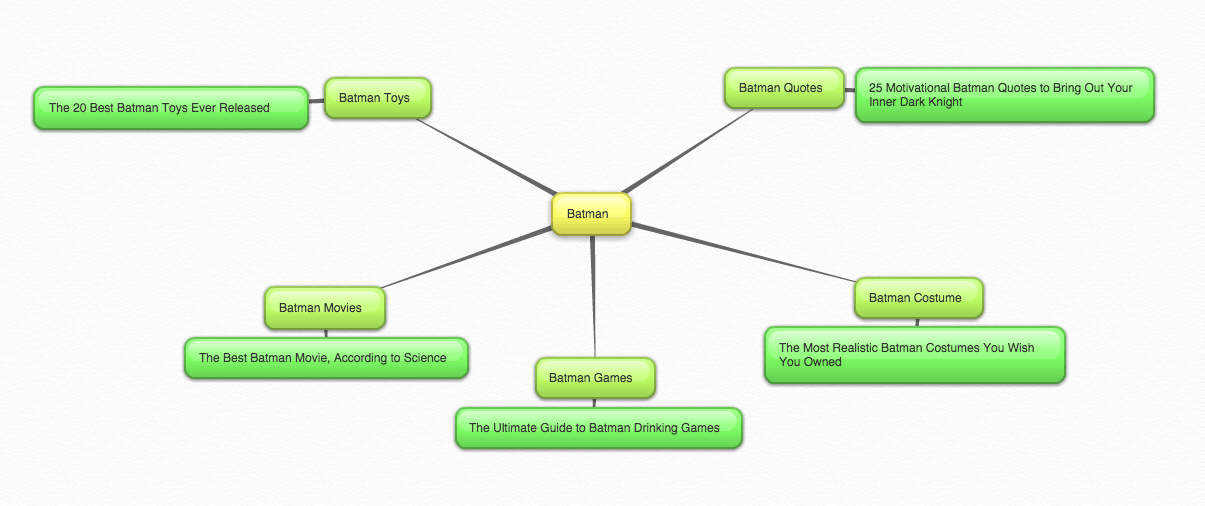For many SEOs, content marketers, and writers, generating ideas for content is one of the most difficult tasks to perform, especially as a beginner.
But whether you’re just getting started or simply struggling with a business SEO strategy, this five-step guide will help you shape how you generate ideas and help you focus on your goal of creating the absolute best content on the web.
Step 1: Do Your Keyword Research
Like many SEOs and content managers, I believe the first step in any content idea generation process should be keyword research.
Do I think it’s an absolute necessity to drive organic traffic? No.
Do I think it’s better than not doing any research? Yes!
The reason I do keyword research for most of my idea generation is simple: I want to know what people are searching so I can help answer simple questions, solve complex problems, and entertain readers.
If I decide one day to write a post about the best pens hotels leave in guests’ rooms, how do I know this is topic worth covering if I don’t have any data to back it up? Well, I don’t. So by moving forward and writing that post, I’m essentially walking into this topic blind.
You wouldn’t drive your car blind, would you? Of course not. You want to know where you’re going. Content and SEO are no different, which is why we do keyword research.
Step 2: Mind Map from Keyword to Topic
Once you’ve got your main, generic keyword on the topic you want to cover, put that keyword through Google’s Keyword Planner Tool and make a list of high-volume keywords that are directly related to your main keyword.
For instance, if my main keyword was “Batman,” here’s what a list of my related keywords would look like:
- Batman Movies
- Batman Games
- Batman Costume
- Batman Toys
- Batman Quotes
From here, you want to create a mind map (I use Bubbl.us), starting with your original keyword “Batman” and add your related keywords to start the map.
Step 3: Go One Level Deeper
Head back to the Keyword Planner and toss your related keywords in one at a time. Take a careful look at the results.
What pops out at you? Don’t just immediately run with the keyword that has the highest volume. Choose something with a good amount of traffic, great potential, and fun factor.
While the ultimate goal is to rank for a specific keyword, as well as those semantically similar, you also want your content to be shareable. Social media acts as a huge discovery platform, and can lead to plenty of links if your content is great and promoted properly.
Step 4: Think About Intent
Intent is one of the single most important lessons you need to learn in order to produce great content. You need to put yourself in the shoes of the person searching for “Best Batman Toys” and think about what they would want to click on after searching that query on Google or any other search engine.
The search “Batman Toys” doesn’t tell us much about intent. More than likely it’s half inquires for information on various Batman toys on the market, and half shoppers looking to buy Batman toys.
“Best Batman Toys,” on the other hand, is not too vague. If someone submits that query, they’re looking for the best Batman toys. To be fair, though,they could be looking for the best of all time, or simply the best available now.
You can choose one, the other, or just try to tackle everything in one incredible piece of content.
Step 5: Provide Value to the Searcher
From here on in, keywords don’t matter. You’ve done your research, picked your topic, and now it’s time to take action.
The ultimate goal here is to provide value to the searcher. Whether that be a group of college kids looking for a list of Batman drinking games or a diehard Batman fan in need of motivational quotes from their favorite character, your content should go above and beyond to satisfy them.
Don’t think about how well you can optimize this page; just think about how the search user will react when they land on your page. Will they be dumbfounded by the amount of detail you went into on the topic, or will they simply be turned off by your failure to understand exactly what they were looking for?
There’s no secret formula to this process. It all depends on how badly you want to succeed. So don’t give up if you fail to rank for the first few months. Simply take notes on how each piece of content performed, how you can improve, and follow through to grow as a writer and marketer.
